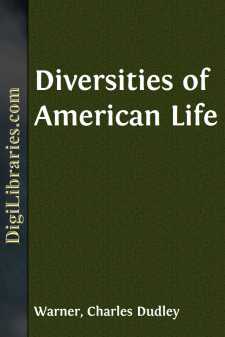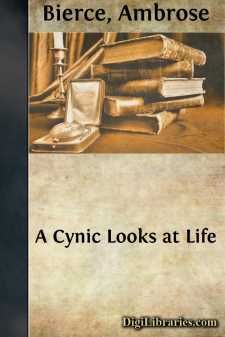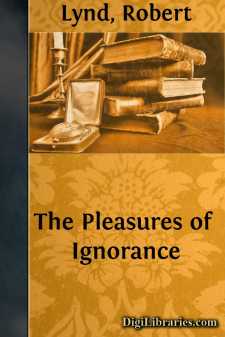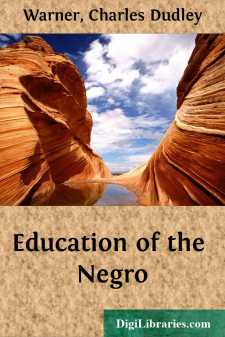Literary Collections
- American 84
- Ancient, Classical & Medieval 14
- Asian 1
- Australian & Oceanian 1
- Canadian 55
- Continental European 121
- English, Irish, Scottish, Welsh 179
- Essays
- General 24
- Letters 46
- Middle Eastern 1
Essays Books
Sort by:
PREFACE. Lord Macaulay always looked forward to a publication of his miscellaneous works, either by himself or by those who should represent him after his death. And latterly he expressly reserved, whenever the arrangements as to copyright made it necessary, the right of such publication. The collection which is now published comprehends some of the earliest and some of the latest works which he...
more...
As I sit by my Christmas fire I now and then give it a poke with a bayonet. It is an old-fashioned British bayonet which has seen worse days. I picked it up in a little shop in Birmingham for two shillings. I was attracted to it as I am to all reformed characters. The hardened old sinner, having had enough of war, was a candidate for a peaceful position. I was glad to have a hand in his reformation. To...
more...
by:
Karl Marx
A CRITICISM OF THE HEGELIAN PHILOSOPHY OF RIGHT As far as Germany is concerned the criticism of religion is practically completed, and the criticism of religion is the basis of all criticism. The profane existence of error is threatened when its heavenly oratio pro aris et focis has been refuted. He who has only found a reflexion of himself in the fantastic reality of heaven where he looked for a...
more...
This is a very interesting age. Within the memory of men not yet come to middle life the time of the trotting horse has been reduced from two minutes forty seconds to two minutes eight and a quarter seconds. During the past fifteen years a universal and wholesome pastime of boys has been developed into a great national industry, thoroughly organized and almost altogether relegated to professional...
more...
by:
Louis Becke
To many people in England the mention of Australia conjures pictures of tented gold-fields and tall, black-bearded, red-shirted bushrangers; of mounted police recruited from "flaxen-haired younger sons of good old English families, well-groomed and typically Anglo-Saxon"; of squatters and sheep runs; of buckjumpers ridden by the most daring riders in the world; and of much more to the same...
more...
LIFE OF EMERSON Ralph Waldo Emerson was born in Boston, May 25, 1803. He was descended from a long line of New England ministers, men of refinement and education. As a school-boy he was quiet and retiring, reading a great deal, but not paying much attention to his lessons. He entered Harvard at the early age of fourteen, but never attained a high rank there, although he took a prize for an essay on...
more...
by:
Ambrose Bierce
I The question "Does civilization civilize?" is a fine example of petitio principii, and decides itself in the affirmative; for civilization must needs do that from the doing of which it has its name. But it is not necessary to suppose that he who propounds is either unconscious of his lapse in logic or desirous of digging a pitfall for the feet of those who discuss; I take it he simply wishes...
more...
In accordance with the advice of Diogenes of Apollonia in the beginning of his treatise on Natural Philosophy—"It appears to me to be well for every one who commences any sort of philosophical treatise to lay down some undeniable principle to start with"—we offer this: All men are created unequal. It would be a most interesting study to trace the growth in the world of the doctrine of...
more...
by:
Robert Lynd
I THE PLEASURES OF IGNORANCE It is impossible to take a walk in the country with an average townsman—especially, perhaps, in April or May—without being amazed at the vast continent of his ignorance. It is impossible to take a walk in the country oneself without being amazed at the vast continent of one's own ignorance. Thousands of men and women live and die without knowing the difference...
more...
At the close of the war for the Union about five millions of negroes were added to the citizenship of the United States. By the census of 1890 this number had become over seven and a half millions. I use the word negro because the descriptive term black or colored is not determinative. There are many varieties of negroes among the African tribes, but all of them agree in certain physiological if not...
more...











